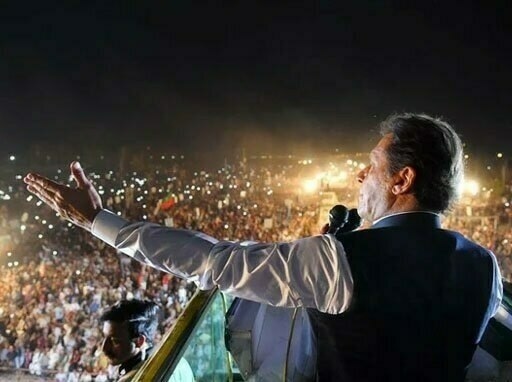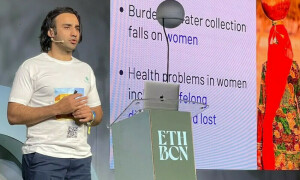PEMRA bars TV channels from broadcasting Imran Khan's speeches and pressers
- PTI announces to challenge the move in court
The Pakistan Electronic Media Regulatory Authority (PEMRA) on Sunday barred TV channels from broadcasting the speeches, press conferences, and statements of former prime minister and Pakistan Tehreek-e-Insaf (PTI) Chairman Imran Khan, Aaj News reported.
In its order issued to all state-run and private TV channels, the media regulatory body said that Imran Khan’s live and recorded speeches, statements and talks have been banned under Section 27 of the PEMRA Ordinance. It said that strict action would be taken against TV channels found disobeying the order.
PEMRA said that the PTI chairman has been making false accusations against state institutions in his speeches, "which is prejudiced to the maintenance of law and order and is likely to disturb public peace and tranquillity."
Reacting to the development, PTI leader Fawad Chaudhry said that the move was the government's "nefarious attempt to suppress Imran Khan's voice."
He said that the party will challenge the ban in court, and also urged the media to move the court against this order.
This is not the first time that PEMRA has imposed a ban on Imran’s speeches. In August last year, the media regulator imposed a blanket ban on live coverage of Imran’s speeches after he allegedly threatened Additional District and Sessions Judge (ADSJ) Zeba Chaudhry, and the Islamabad Police IG and DIG, of “consequences” after the judge handed over physical custody of the ex-PM’s aide, Shahbaz Gill, to police for two days.
Subsequently, Imran approached the Islamabad High Court (IHC) which then set aside the ban on September 6, 2022.
Two months later, on November 5, PEMRA again banned Imran’s press conferences – this time for levelling accusations against Prime Minister Shehbaz Sharif, Interior Minister Rana Sanaullah and a senior intelligence official for his attempted assassination.
Hours later, the government retracted its own order with Information Minister Marriyum Aurangzeb saying at the time that the incumbent government believed in “democratic principles and constitutional freedoms of expression”.
























Comments
Comments are closed.